As a special special purpose vehicle of dangerous goods, the safety of oil tanker has always been the focus of national regulatory agencies, dangerous goods transportation companies and tanker owners, so as the core component of the tanker, the tanker body The choice of material has always been a problem for dangerous goods transportation companies and tank truck owners.
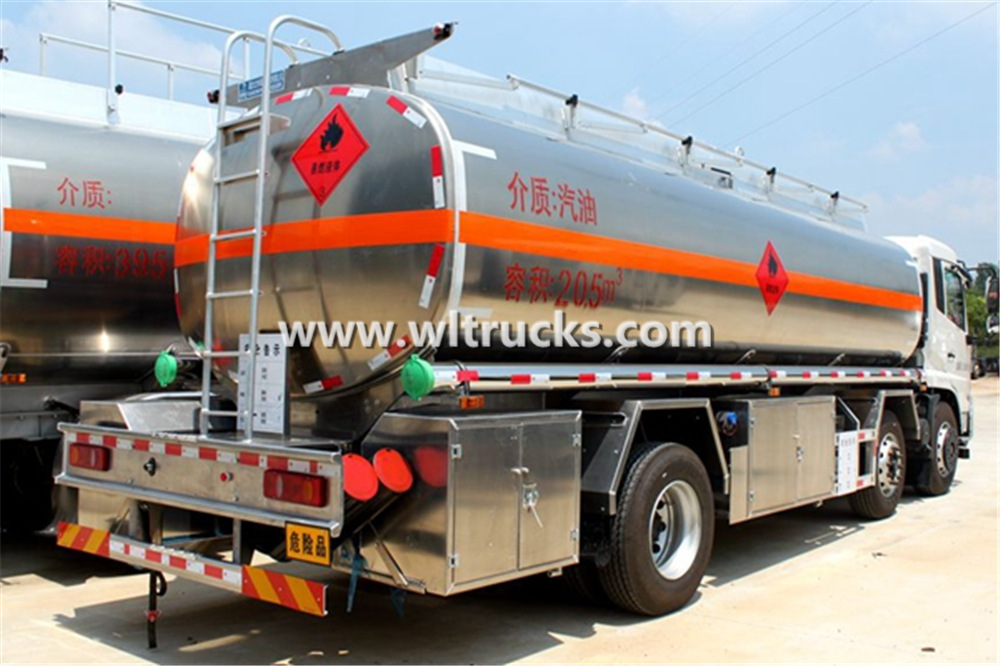
If the tank body made of carbon steel is used, because the weight of the carbon steel tank body is large, the load will be less and it is easy to be overloaded; if the aluminum alloy tank body is used, although the tank body is lighter, it is worried about the aluminum alloy tank body. Because there is no toughness, I worry that the life of the tank is too short.
So should you choose an aluminum alloy fuel oil tanker? Today, Chengli Automobile will analyze it for everyone.
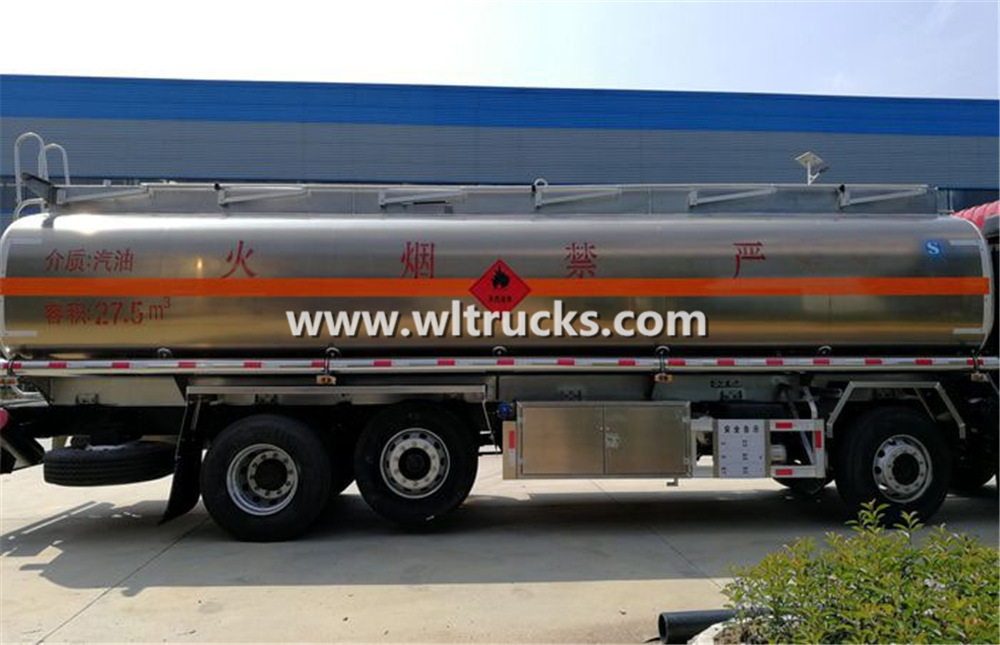
1. Let’s first analyze the advantages and disadvantages of aluminum alloy fuel oil tanker bodies.
The aluminum alloy fuel oil tanker body has the following advantages:
1. The aluminum alloy tank for the same model can be pulled more.
The tank body of aluminum alloy oil tanker is aluminum-magnesium alloy, and the material density is relatively small, so the tank body of the same volume is lighter than carbon steel. Let’s take a 28-cubic fuel tank truck from the first four and six after liberation as an example.
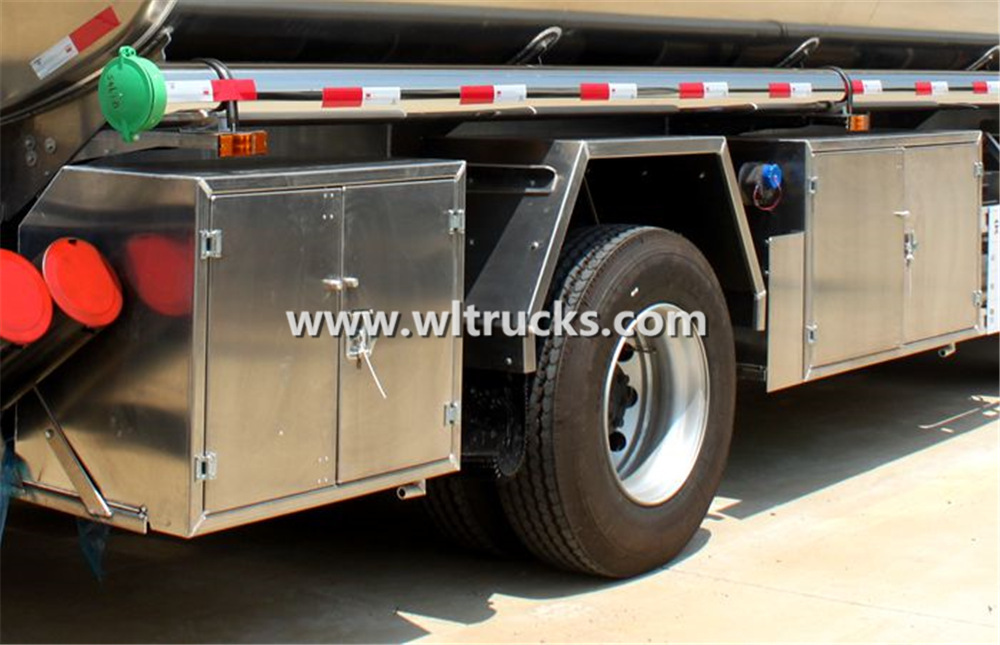
If it is produced with aluminum alloy tank material, the curb weight of this vehicle is about 11 tons; and if it is produced with carbon steel material, then The curb weight of this car can reach 13 tons.
When the total weight of the four-axle vehicle is 32 tons, the greater the curb weight, the smaller the rated load. Then we can see that it is also a 28 cubic meter tanker, and the tanker with aluminum alloy tank can pull two tons more oil than the tanker with carbon steel. Car owners and dangerous goods transportation companies naturally know how much money can be earned in a year with two tons per trip.
2. The aluminum alloy tank body does not rust and does not pollute the oil.
Due to the chemical reaction between aluminum and oxygen, aluminum oxide is formed, which is aluminum rust. Aluminum rust is very thin, its thickness is only one ten thousandth of a millimeter, but it is very hard and very wear-resistant.
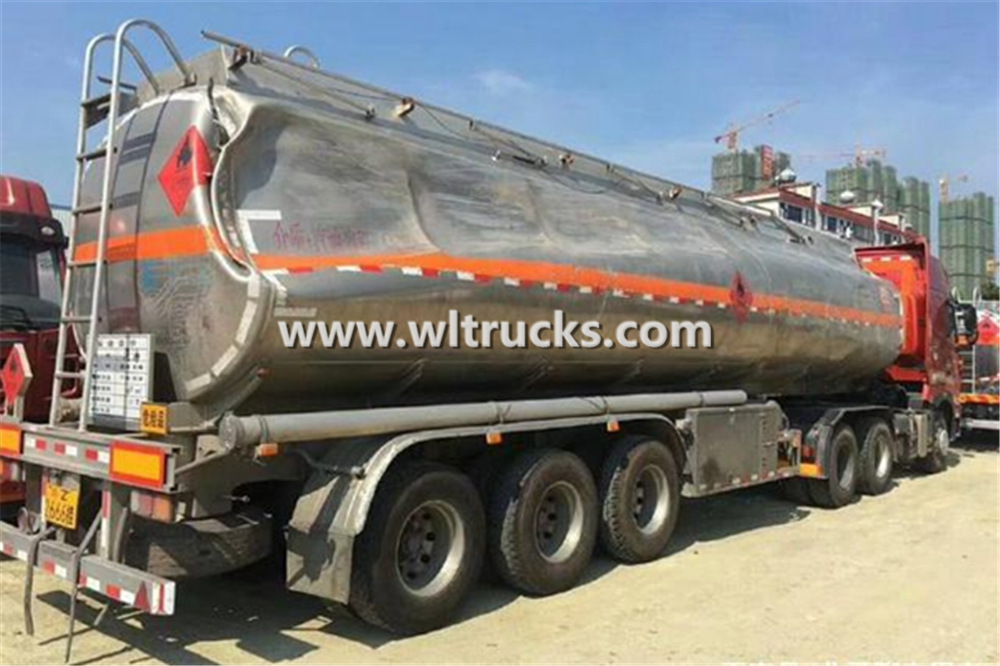
It clings to the surface of the aluminum, so that the aluminum inside cannot reach the outside air, preventing the aluminum from continuing to rust. Therefore, the aluminum alloy tank body will not pollute the oil during transportation, and there will be no impurities during the oil transportation.
3. Because the aluminum alloy tank is lighter, the relative center of gravity is lower, so it is safer and more fuel-efficient.
The density of aluminum alloy tank material is 2.72g/cm³, and the density of carbon steel tank material is 7.85/cm³. The weight of carbon steel is almost three times that of aluminum alloy tank under the same volume.
Due to the small weight of the aluminum alloy tank, the center of gravity is safer than that of the carbon steel tanker. At the same time, it is more fuel-efficient due to the reduced weight of the vehicle.
In addition, the aluminum alloy tank has better thermal and electrical properties and is easy to release static electricity. When the tank collides with foreign objects, no sparks will be generated, which reduces the possibility of fire.
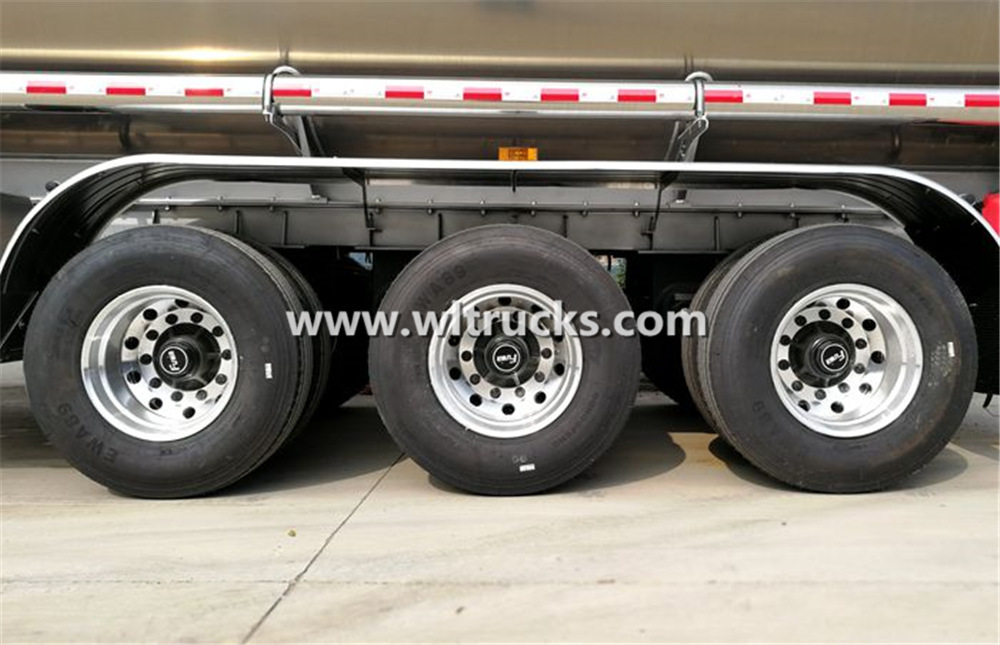
4. The residual value of aluminum alloy tanks is higher after being scrapped.
The purchase price of aluminum alloy scrap is 3 yuan/jin, while the purchase price of carbon steel scrap is 1 yuan/jin, which is three times that of carbon steel.
2. Having said so many advantages, let’s analyze the disadvantages of aluminum alloy fuel oil tank trucks.
1. Aluminum alloy is a brittle material with low hardness.
Compared with carbon steel tanks, aluminum alloy tanks have poor toughness and are not resistant to impact. Once a traffic accident occurs, the tanks are likely to rupture and leak. However, the poor toughness is only relative.
The reasonable design of the aluminum alloy tank structure can also greatly reduce the occurrence of this situation. As shown below:
The tank body of the above vehicle was severely deformed after overturning, but the oil did not leak. It also shows from the side that the aluminum alloy tank body is not as fragile as imagined. Therefore, this problem can be perfectly solved by using high-quality aluminum alloy materials and a reasonable tank structure.
2. The life of the aluminum alloy fuel oil tanker body is relatively short.
Due to the long-term installation of aluminum alloy tanks on the car chassis, when the road conditions are bumpy or turning during driving, after the tank is under pressure for a long time, it is very easy to leak oil from the welds of the tank. However, this problem has now been resolved.
Nowadays, the welding of aluminum alloy tanks is automatic welding, and each tank has been strictly tested, and leakage has rarely occurred. Let’s show you the effect of aluminum alloy automatic welding:
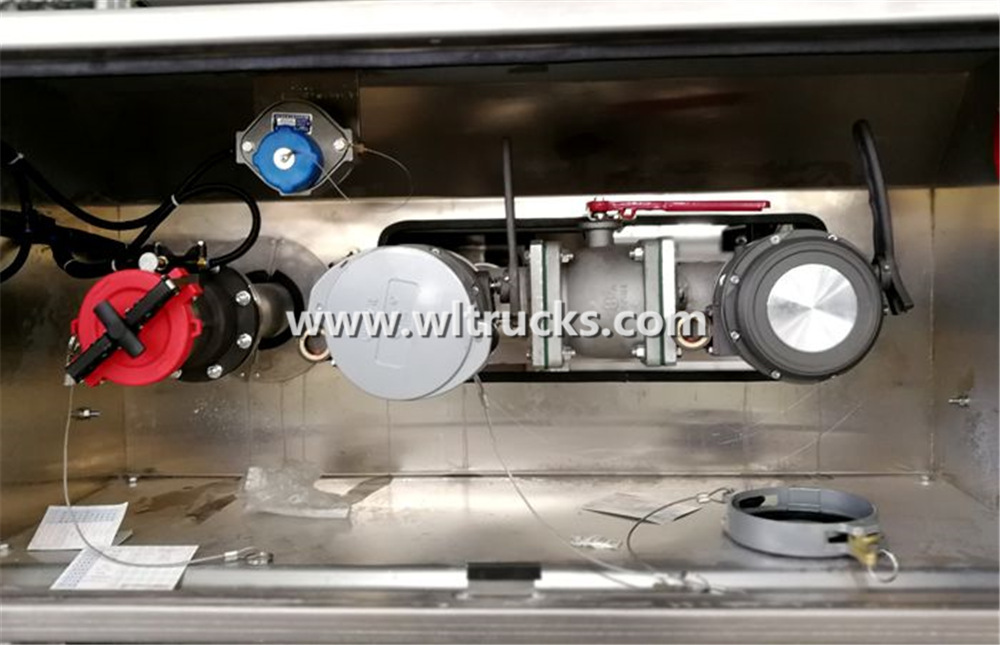
And now, as Dongfeng Tianlong has introduced an air-suspended chassis, this reduces the pressure on the tank body, and the tank body has a longer life. The maximum service life of a tanker truck is 8 years. Generally, a tanker truck is basically not used for about 5 years, and it will be scrapped before 8 years. Therefore, one-sided pursuit of the life of aluminum alloy tank trucks is nothing but faultfinding.
3. The price of aluminum alloy tanks is relatively high.
The cost of the aluminum alloy tanker is three times the cost of the carbon steel tanker. Take the 28-cubic front four and eight rear tanker as an example.
The aluminum alloy tanker is more expensive than the carbon steel tanker. Around 70,000. If you count the aluminum alloy tanker truck that can pull 2 tons more fuel than the carbon steel tanker truck, the money earned in more than five years is far more than this 70,000 yuan.
Therefore, although the purchase cost of aluminum alloy oil tanker is high, it also makes more money, so this price cost is also offset.
To sum up, the advantages of aluminum alloy tank trucks far outweigh the disadvantages. The lightweight of tank trucks is the general trend. After all, it is a wise choice to make more money without overloading.
